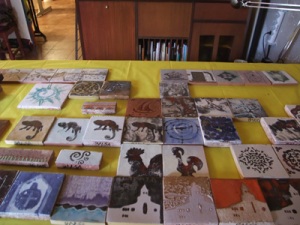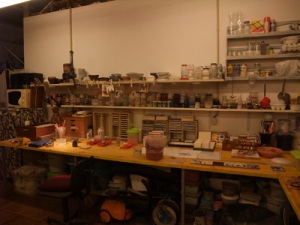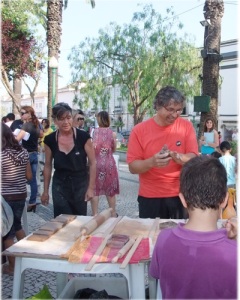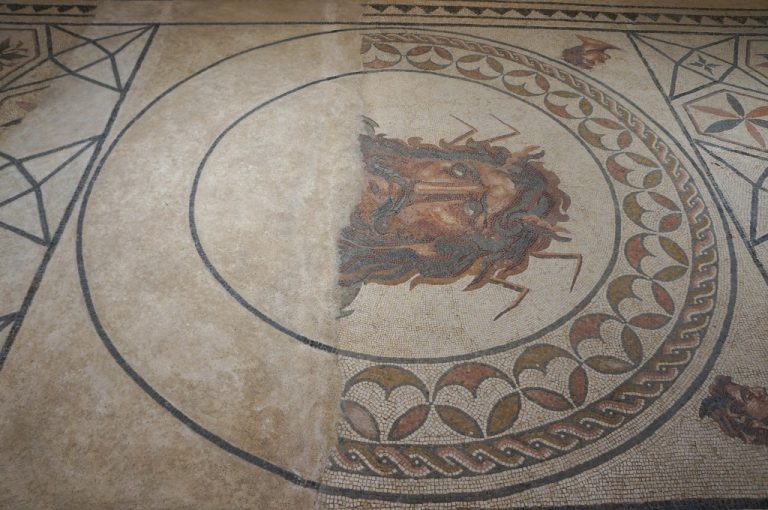Field of artistic dreams
A group of artists are working together in Tavira to inspire the local community to take a step into a range of creative activities. They work together as a cultural association using creative arts. What inspires them is the desire that people will share their skills and learn together in a workshop space opposite the old Tuna factory on the road to Tavira Island. It’s a magical site over looking the river Gilão. The studio has taken nearly a year to set up and officially opened its doors in January 2011.

The studio is called Criativa Unidade and is the idea of three artists working with different mediums, Isabel Viegas, Martin Dornellas, Miguel Mastinho. They all hale from the north of Portugal, but have settled in Tavira and made it home. Martin is a ceramist. Miguel a sculptor and Isabel, has a background in graphic design, but also teaches ceramics. In speaking to them you feel their dream, which reminded me of the film “Field of dreams”. They are building a project and they want people to come.
Miguel in particular was taught and inspired by the late, Bartolomeu dos Santos who is internationally recognised. Bartolomeu dos Santos was perhaps Portugal’s most important printmaker of the twentieth century. He studied etching and engraving techniques at the Slade School of Fine Art, London. Later he became a Professor of printmaking (for 35 years) at this school and Emeritus Professor in Fine Art at the University of London. He also had a home and studio in Tavira. Miguel studied etching at that studio in Tavira and now continues to work using copper plates for etching. A constant innovator, Bartolomeu dos Santos’s etchings often combine both stones and plates. He illustrated a number of fine books with his etchings, including several by Jose Saramago. Miguel calls this “acid and alchemy” and says “copper is a noble material”

What makes this group of artists different is the work they are doing in the community. They run workshops in schools and take part in community projects. In the summer of 2011, as part of a project to address racism and xenophobia they ran workshops for children in the gardens in the centre of Tavira. Children from Portuguese and foreign backgrounds were encouraged to play with clay and make tiles together. Experts argue that clay is a strong expressive medium and is ideal for enhancing children’s development and holistic learning. Working with clay improves dexterity and uses both small and large muscles. Little fingers and hands are strengthened whilst working with clay due to its firm nature and the larger muscles of the arms, back and shoulders are strengthened when rolling slabs or wedging clay. Children’s imaginations are stimulated through the use of clay as they stretch their minds to develop new ideas for things to make and new ways in which to use the clay and tools. This naturally leads into problem solving as children are challenged to overcome the limitations of their materials, for example how can I fix a top to this box I have made? Through these processes, working with clay promotes numeracy in children as they constantly think through mathematical and spatial problems: how high can I make this into a tower? How heavy should the base be? Why does this not balance? How can this piece fit inside another? How long does this coil need to be? How thick should I make my slab?
The tiles the children made in the summer will be on display in Tavira during the weekend of 26-27th November.

Criativa Unidade’s future projects include a range of workshops such as how to make plaster moulds and waste moulds. A waste mould is an exercise in “negative” image plaster work. Other workshops planned are silicon rubber mould making and silk screen printing. Their next community initiative involves creating a painting and interpreting the painting in dance as part of a visual arts experience.
Isabel is at the studio each day and other artists frequent the building. Artists can use the space for a fee and they hope this will deepen the creative adventures of the studio.
Many retired people and children take advantage of pottery workshops which explore throwing clay on a wheel and making clay creations by hand using the coil method. A children’s workshop takes place each Saturday mornings at the studio. All students are encouraged to use their imagination to develop their own style. Adults are first taught how to make a mask from clay. Isabel says “the secret of ceramics is slowness and calm”.
To find out more or to take part in a workshop call Isabel at the studio or send an email.
Unidade Criativa
associação cultural
Estrada das 4 águas
8800-602 Tavira
(00 351) 910 255 441
(00 351) 961 968 373
